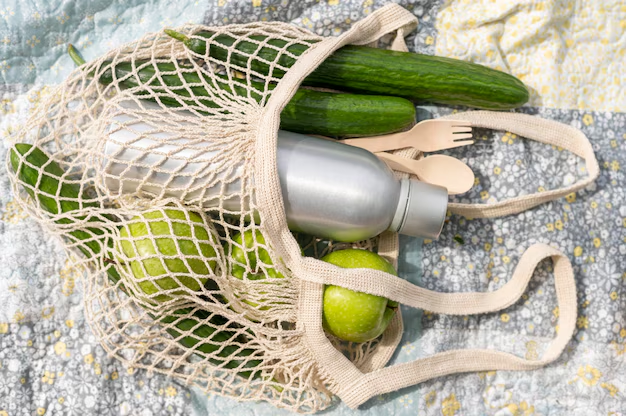Should You Keep Cucumbers in the Refrigerator? A Comprehensive Guide
When it comes to storing fruits and vegetables, there's often a debate about the best methods to preserve freshness, flavor, and nutritional content. A common question on this list is: "Should cucumbers be kept in the refrigerator?" Given their popularity in salads, sandwiches, and as snacks, knowing how best to store cucumbers can greatly enhance your culinary experience. Let’s delve into the different perspectives and practical considerations surrounding this topic.
Why Proper Storage Matters
Cucumbers, like many other vegetables, are perishable items that can quickly lose their appeal if not stored properly. Proper storage isn't just about maintaining a cucumber's crisp texture — it's also about ensuring its flavor and nutrient profile remain intact.
The Impact of Temperature and Humidity
Humidity and temperature play significant roles in preserving the quality of cucumbers. Cucumbers prefer a cool environment, but not too cold. Storing them in an area with too much moisture or heat can speed up spoilage and result in a mushy texture.
The Ethylene Gas Factor
Ethylene is a natural plant hormone released by some fruits and vegetables as they ripen. Cucumbers are sensitive to ethylene, meaning they can spoil faster when stored with ethylene-producing fruits like bananas and tomatoes. Understanding this interaction can guide your decisions on storage and placement in the refrigerator.
A Closer Look at Refrigerating Cucumbers
Advantages of Refrigeration
Refrigerating cucumbers can help extend their shelf life by slowing down their metabolic processes. The cold environment of the refrigerator is typically preferable for those looking to keep cucumbers fresh for several days. Here are some benefits:
- Longer Preservation: Cold temperatures help maintain the cucumber’s crispness and prevent premature softening.
- Reduced Spoilage: The cool environment slows down microbial activity, which can lead to spoilage.
- Consolidation with Other Produce: If you already store most produce in the refrigerator, keeping cucumbers there can be more convenient.
Drawbacks of Refrigeration
Despite the advantages, there are also some potential drawbacks to consider:
- Flavor Alteration: Cucumbers can develop a "fridge taste," which might alter their natural flavor profile.
- Moisture Loss: Refrigerators can sometimes be too dry, leading cucumbers to lose their moisture and become rubbery.
To Wrap or Not to Wrap?
If you decide to refrigerate cucumbers, consider how you store them. Wrapping them in a loose, breathable bag can prevent excessive moisture loss while allowing some air circulation. This strikes a balance between retaining humidity and preventing condensation.
Alternatives to Refrigeration
Counter Storage
If you plan to consume cucumbers relatively quickly, keeping them on the counter may suffice. This method allows cucumbers to maintain their flavor and juiciness for a few days without refrigeration. However, this is more applicable if you consume them within this time frame.
Cool, Dark Pantries
A cool, dark pantry can also serve as an effective storage location. The environment should be well-ventilated to prevent the build-up of warmth and humidity, which can quicken spoilage.
Related Storage Tips for Other Vegetables
Understanding cucumber storage leads naturally to broader questions about other vegetables. Here are some general guidelines:
Tomatoes
- Do not refrigerate unless overly ripe.
- Keep them on a kitchen counter to maintain flavor.
Potatoes
- Store in a cool, dark place.
- Avoid refrigeration as it affects flavor and texture.
Leafy Greens
- Refrigerate in a plastic bag with some ventilation.
- Consider using paper towels to absorb excess moisture.
Cucumber Storage Best Practices
💡 Here are some quick tips for storing cucumbers effectively:
- Separate from Ethylene Producers: Keep away from fruits like bananas.
- Cool, But Not Too Cold: Maintain moderate refrigeration to avoid freezing.
- Ventilation is Key: Use breathable bags or wraps to prevent moisture accumulation.
- Consider Pantry if Short-Term: Use a cool, dark place for short-term storage.
Tools and Accessories to Optimize Storage
For those keen on maximizing the longevity of cucumbers and other produce, a few household tools can come in handy:
- Vegetable Storage Bags: Specialized bags can maintain the correct humidity levels.
- Produce Saver Containers: Containers with vents and tray systems separate produce from moisture.
- Humidity Control Drawers: Some refrigerators feature specialized drawers for managing humidity — perfect for cucumbers.
Embracing Variety in Storage
It's important to remember that conditions vary in every home. Climate, usage patterns, and even personal taste can influence how best to store your cucumbers. Consider experimenting with different methods to see what works best for you. Record your findings to determine your own best practices over time.
By understanding the nuances of cucumber storage and integrating these tips into your routine, you’re well on your way to enjoying fresher, crisper cucumbers longer. So, the next time you're unpacking groceries, take a moment to decide where your cucumbers would be happiest: in the refrigerator, on the counter, or tucked away in a pantry. Your taste buds — and your wallet — will thank you!

